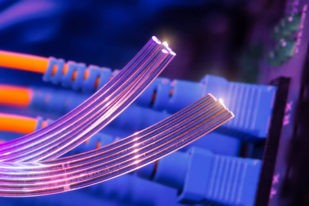During his dialogue on AT&T’s earnings call last week, CEO Randall Stephenson share his forecast of 5G, the fifth-generation wireless, emerging as a “fixed broadband replacement product” over the next 3 to 5 years, or so, offering users with drastically improved speeds as compared to most current DSL and cable connections.
The marketing division at AT&T is more than certain that consumers will witness “unforeseen innovation” as the 5G networks of tomorrow begin to take effect. Both Verizon and AT&T have spent quite a few years claiming 5G to be an unparalleled remedy to slow Internet speeds and irregular availability of conventional cable broadband, thence establishing 5G as a vital cornerstone of tomorrow’s smart networks and smart cities.
If 5G could make up for the loopholes of traditional broadband, it would be bridging a critical gap in the United States’ internet access culture.
While the cable broadband is a patch, inconsistent and sporadically available for most Americans, there’s almost no competition either in terms of faster speeds. Both the leading carriers AT&T and Verizon have frequently faced criticism and occasional lawsuits for promising high-performance fiber broadband they never deliver. Inadequate availability of broadband in America is often seen as a governmental strategic failure.
However, many experts believe that there are sufficient reasons to be uncertain about all the hype being promised and publicized around 5G, given that these leading American telecom companies have a long list of infamous failures and unfulfilled broadband promises.
While 5G is expected to deliver lower-latency and faster speeds, it shouldn’t be seen as a 360-degree solution to all the widespread problems playing a spoilsport for America’s broadband sector.
Often, organizations like the Electronic Frontier Foundation have argued in several government filings that all the hype around 5G eclipses the long list of failure on part of these telecom companies in deploying real high-performance fiber broadband to rural and less markets across the States, regardless of billions paid in regulatory favors, subsidies, and tax breaks. Consequently, they claim that 5G should not been considered as synonymous, or an alternate of, faster fiber broadband these companies must have come up with several years ago.
Legislative counsel at the EFF, Ernesto Falcon, recently said that a wireless service can never be competitive with high-speed wired broadband services. “The fastest speeds the industry is boasting about for the future of wireless has already been surpassed by fiber to the home years ago,” he said.
Carriers operating in rural areas have frequently blamed enterprises like Verizon and AT&T for overstating the availability of 4G.
Meanwhile, the majority of 5G marketing and media coverage generally omits the principal reason behind 5G not being the ideal alternative to fixed-line broadband.
Consumers in the US are already paying some of the highest prices for accessing 4G LTE as compared to their counterparts outside of US, and thus far, 5G is no better whatsoever.
AT&T’s initial 5G rollout is likely to be pegged at around $500 for a hot spot on top of $70 for a mere 15 gigabytes of usage (not to forget there will be an additional fee just to connect to AT&T network).
Having said that, it will definitely not replace fixed-line wired broadband, given the amount of daily data usage by regular Internet consumers these days. And for those who fancy 4K gen-next gaming, fixed-line is certainly the better option.
Also, the transition to 5G won’t be capable of addressing one of the largest and often overlooked, the reason behind high wireless fee in the US. Giant ISPs have a by default monopoly over business data services (BDS) marketplace, which drastically increases the cost associated with providing wireless services.
This “special access” marketplace connects almost everything from desktop and mobile users to ATMs, cell towers, larger internet facilities, and a lot more, and as per reports by FCC, a massive 73% geographical regions across the US are dominated by a single ISP (generally Verizon, AT&T, or CenturyLink).
Hefty monthly bills and incumbent monopoly
Small and mid-sized carriers have always been complaining that incumbents make the most of this monopoly to charge hefty rates for connecting to their towers for internet services, leaving smaller carriers with no option other than paying big to the incumbents – which directly impacts their competitiveness as well as their internet subscribers.
Most smaller ISPs believe that 5G is not likely to influence a change in this dynamics. The incumbents have already raised charges on business consumers through BDS lines, and permitting them to destroy the bridge to broadband would leave millions of consumers with hefty bills, slow speeds, and a no 5G future.
Many experts are of the opinion that wireless connections may soon come along with arbitrary restrictions which have never been a concern on wire-line connections.
For example, the EFF recent said widespread attacks on net neutrality and FCC authorities tend to open the doors for all sorts of network restrictions and aggressive pricing that would not only skyrocket your bills, but will actually change the manner in which we use internet for the worse.
For instance, Verizon is already charging its unlimited data plan consumers more money for accessing full HD content.
“If the carriers adopt aggressive zero-rating plans in the 5G market as a means to charge ever higher prices, it will directly stifle the promise of faster wireless service and allow them to engage in anti-competitive practices against alternatives on the Internet,” Falcon said.
At last, all this is not to claim that 5G will be a bad thing for consumers when it actually goes live at its full strength around the world, though that’s not likely to happen anytime sooner than 2020 for the least.
Initial lab trails have shown promising speeds of around 1.7 Gbps, and the virtualization technology that comes hand-in-hand with the standard is certain to make wireless networks fast, simple, and more resilient. With 5G’s low latency, building mobile network-reliant technologies will be simpler than ever before.

